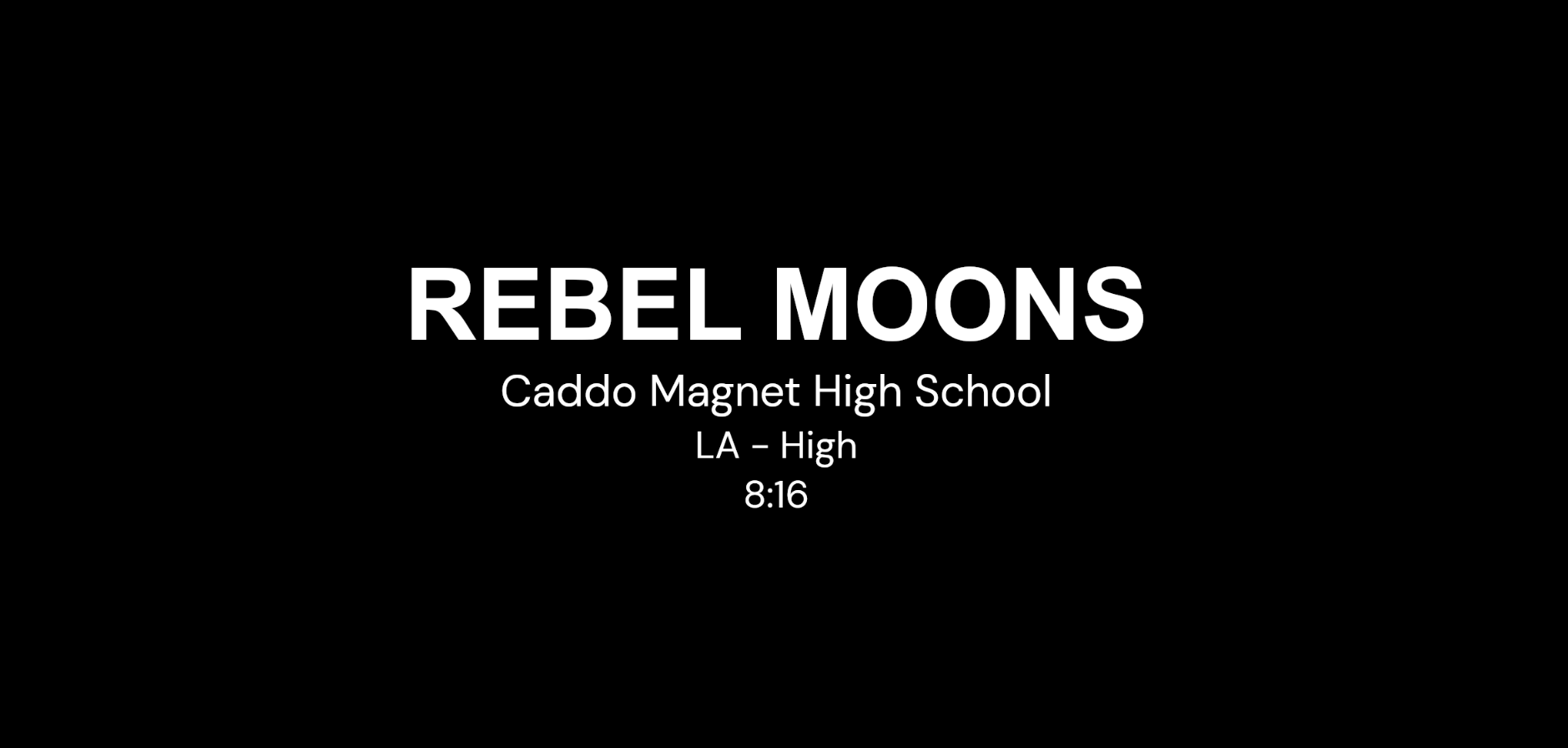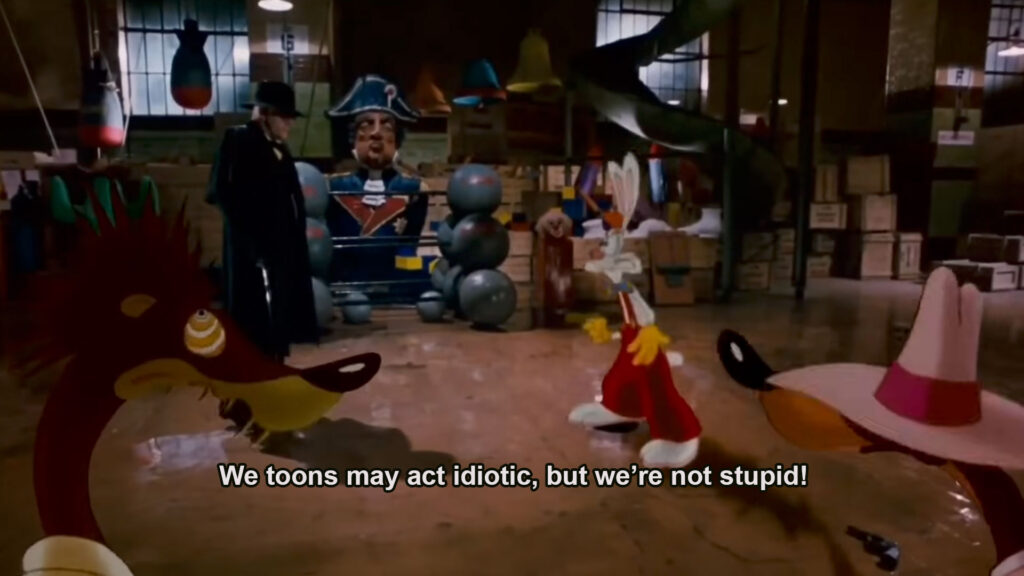FILM PRIZE JUNIOR 2024-2025 RULES & REGULATIONS
OVERVIEW OF BASIC GUIDELINES
register your organization to participate
Teachers should create an account on the Filmmaker Portal to officially register their school or organization to participate in Film Prize Junior. All needed to register is an organization interested in participating and the teacher who will become the primary point of contact. Teachers may have already pre-registered prior to the Filmmaker Portal relaunch in October 2024.
REGISTRATION DEADLINE (EXTENDED TO) JANUARY 17, 2025
GET PERMISSION AND CONSENT OF PARENTS
The Film Prize Junior team is committed to a safe, educational, and supportive environment. Organizations participating in Film Prize Junior must
- Send the Organization Authorization Form signed by the Teacher Producer and administration to the FPJR LA team.
- Share the Parental Consent with legal guardians, collect and submit signed forms of every child participating in the Film Prize Junior program. Teachers are to keep these forms on file until the next school year.
For more information about what Personal Information is collected and published, refer to the Film Prize Junior Privacy Policy at http://filmprizejr.com/privacy-policy
WRITE AN ORIGINAL SCRIPT OR DOCUMENTARY OUTLINE
Once a Teacher Producer has created an account on the Filmmaker Portal they will help their students submit their scripts and get approval from the Film Prize Junior team before beginning production. This Pre-Production process ensures our team can provide guidance, assess resource availability, track progress, and become familiar with the film production. Need help? Visit our Learning Center.
SCRIPT SUBMISSION DEADLINE EXTENDED TO JANUARY 17, 2025
Follow the CONTENT RULES & GUIDELINES
For each Festival Entry to qualify as a finalist, the Teacher Producer and Student Filmmakers must submit a Script that documents the plans and intentions for their short film. You can learn more about the review process under Script Submission in the 2025 Festival Entry Requirements. The Film Prize Junior team must approve Scripts before Student Filmmakers may begin production of their films.
The Film Prize Junior team designed the following Content Rules & Guidelines to guide Student Filmmakers through the filmmaking process and to keep production safe and legal for all participants of Film Prize Junior.
Reminder: With consideration for the inclusive nature of our festival and the curation of viewing slates ahead of festival screenings, all entries must abide by the following restrictions regarding presentation, time constraints, and film credits. The Film Prize Junior team reserves the right to edit content as necessary regarding time and format, including but not limited to the following examples: display aspect ratio, opening credits, closing credits, sound quality, resolution, inclusion of title cards, etc.
SUBMIT FINAL FILM AND FILMMAKER PORTAL
Once you have completed production, you will submit your Student Filmmakers’ final film as well as the information required in the Filmmaker Portal, which you were invited to once you have applied to participate.
FILM AND PORTAL SUBMISSION DEADLINE MARCH 18, 2025
grounds for DISQUALIFICATION
The Film Prize Junior team reserves the right to disqualify a Festival Entry if incomplete or its contents violate our Rules & Guidelines. Filmmakers will be notified of issues and given a deadline to correct them. Failure to comply will result in disqualification.
ALL DECISIONS REGARDING DISQUALIFICATION FROM THE COMPETITION ARE FINAL.
Any entry disqualified from the festival will no longer be eligible for the following privileges:
- In-person festival screening
- Streaming on the Film Prize Junior website
- Participating in the Virtual Red Carpet
- Competing for available awards and prizes
- Entries failing to meet Festival Requirements will be disqualified.
- Any Festival Entry submitted without the Teacher Producer’s permission risks disqualification from the festival.
- Any entry whose Final Cut submitted for our festival is found to have debuted prior to our festival on a public viewing platform, including broadcast media channels or social media platforms such as YouTube, Vimeo, Instagram, TikTok, etc., will be disqualified from the festival.
- Screenings at Schools and Community Organizations for private audiences are allowed. Promoting a Festival Entry via press releases and sharing promotional materials such as teaser trailers, posters, behind-the-scenes pictures, or film stills is encouraged.
- Any Festival Entry using uncredited or unauthorized Licensed Media, having over 50% borrowed visual media exceeding Total Run Time in films, or violating AI content guidelines will be disqualified from the festival.
- Any entry found in violation of the aforementioned rules regarding Language, Theme, Violence, or Safety will be disqualified from the festival.
REGISTRATION AND TEACHER/SCHOOL RESPONSIBILITIES
Registration is required to participate in the Film Prize Junior Film Festival 2025
.
REGISTRATION CLOSES DECEMBER 31, 2024
To register, a Student Film will need both a Teacher Producer and an Educational Organization, such as a school or community organization, to represent them. To begin, Teacher Producers register themselves and their affiliated Educational Organization. From there, the Film Prize Junior will help provide you with resources to aid your students in their filmmaking journey!
About the Teacher Producer Role
Find out more about what a Teacher Producer does and what their responsibilities are to the Film Prize Junior process.
What is a Teacher Producer?
Much like a school club sponsor, a Teacher Producer supervises, motivates, supports, activates, and communicates with students on behalf of Film Prize Junior Louisiana to complete a short film for screening at the Film Prize Junior Festival. Upon registration, the system creates an account for the Teacher Producer to use the Filmmaker Portal webpage which will be a guide along the process of scriptwriting, production, and post-production.
The Teacher Producer works closely with their Student Filmmakers to develop a script and submit it for approval by January XX, 2025. Film Prize Junior team members will review the script for adherence to the rules and to provide guidance on how filmmakers can achieve their goals. Once the script receives Approval, students can begin production of their film. Approval usually takes one week or less.
Who can be a Teacher Producer?
A Teacher Producer is typically an educator or administrator employed by an Educational Organization. They may teach any subject or fulfill a similar instructor-type role. No current or prior filmmaking experience or media-related education is required!
What does a Teacher Producer do?
The Teacher Sponsor manages a Student Filmmaker’s entry into the Film Prize Junior Festival. A Teacher Producer is responsible for being aware of and encouraging Student Filmmakers’ progress in competing their student film as well as providing progress updates regarding their students’ entry to the Film Prize Junior team. They also play a crucial role in communicating news, guidelines and rules, deadlines, and resource provisions to their Student Filmmakers. They will also be responsible for submitting their film entries on the Filmmaker Portal. Teacher Producer also ensures that students adhere to any school or district-level rules.
Why are Teacher Producers important?
Film Prize Junior does not communicate directly with students, so Teacher Producers are necessary links in communication between the festival and Student Filmmakers. Their presence and regular communication with Student Filmmakers has shown to be crucial to increasing the odds of students completing their entry. They may even find themselves providing guidance and facilitating learning and development of skills by demonstrating or coaching various skills (e.g., time management, interpersonal, or even equipment proficiency skills).
Can I get help as a Teacher Producer?
Yes! One of Film Prize Junior’s primary missions is to ensure educators have the tools they need to facilitate their students’ success in competing their projects. In addition to one-on-one support, upon registration, the Teacher Producer will be invited to virtual workshops, webinars, and the Film Prize Junior Learning Center. These are supplemental learning environments and are not required for the competition.
Educational Organization
Find out more about the role of an Educational Organization in the world of Film Prize Junior.
What is an Educational Organization?
An Educational Organization serves as the source of employment for the Teacher Producer and a source of enrollment for the Student Filmmakers. Educational organizations are not required to have a dedicated media class or film-focused education and resources.
For the purposes of Film Prize Junior Awards, all entries must designate whether the affiliated Educational Organization is a School or a Community Organization.
What counts as a School?
A School is an Organization accredited by the State of Louisiana’s Department of Education with a location based in-state, such as a public school, private school, charter school, OR any home school group offering comparable education.
What is an example of a Community Organization?
A Community Organization is an extra-curricular Organization that does NOT have accreditation by the State of Louisiana’s Department of Education and functions independently of a school or accredited institution. They must, however, be registered with the State of Louisiana as a business or nonprofit organization. Examples of Community Organizations, as defined by our competition, include theater troupes, nonprofit organizations, professional interest or job training initiatives, academic assistance cooperatives, regional or neighborhood after-school operations, etc.
NOTE: Entries registered under a Community Organization must designate a School Beneficiary before or during Film Submission. This School Beneficiary will receive any Film Equipment Grants awarded to the Community Organization’s Festival Entry. If the Teacher Producer does not designate a School Beneficiary by the Film Submission deadline, the Student Filmmaker credited as either the Writer or Director will have their current school or parish of enrollment automatically designated as the beneficiary.
Student Filmmakers
Only students are allowed to make films for the Film Prize Junior Film Festival. Learn the guidelines Student Filmmakers must meet for Film Prize Junior.
NOTE: In previous years, projects designated a Student Lead to track progress and represent the project. This year, the Writer and Director will represent the project. See notes on Credits in the Rules section below.
Who can be a Student Filmmaker?
A Student Filmmaker must be a 5th – 12th grade student enrolled at the same Educational Organization as their Teacher Producer. Students are not required to have any filmmaking or leadership experience before participating in Film Prize Junior. Film Prize Junior does not enforce any academic eligibility requirements for students participating in our competition, though your Educational Organization may choose to enforce academic requirements for your students in keeping with your rules of conduct or grades as the Organization sees fit.
What must a Student Filmmaker do to compete?
Students are responsible for every part of the filmmaking process, from story development to production, post-production, and promotion. While Teacher Producers and other mentors may contribute to the creative process, encourage, and guide, they CANNOT work on any part of the film production without Student Filmmaker’s collaboration.
How many students can participate per entry?
There is no limit to the number of students who may participate. Students may be from different schools are encouraged to collaborate. However, a maximum of three (3) students may be named as directors per entry.
SCRIPT SUBMISSION
Script approval is required before production (filming) may begin.
SCRIPT SUBMISSION DEADLINE JANUARY 17, 2025
Student Filmmakers must submit their scripts to the Filmmaker Portal and get approval from the Film Prize Junior team before beginning production. This Pre-Production process ensures our team can provide guidance, assess resource availability, track progress, and become familiar with the film production.
NOTE: This differs from previous years when submission only required any form of “Proof of Concept.” Teachers must also communicate any major changes to the script once approval is granted to avoid disqualification.
Pre-Production and Script Submission
All festival entries must prepare a script submission before submitting their film to compete in the Film Prize Junior Festival. To be eligible to compete, the Film Prize Junior Review Team must approve all content in a Script Submission, ensuring it adheres to our content rules and guidelines.
What is Pre-Production?
Pre-production is the phase of filmmaking where all planning, scripting, casting, location scouting, scheduling, and budgeting happen before actual filming begins. During Story Development, you’ll write your script.
What is a Script Submission?
Script Submissions document the plans and intentions of a Festival Entry created by the affiliated Student Lead and Filmmakers. Only Screenplays and Documentary Outlines will be considered acceptable documentation for a Script Submission. Refer to our PDF guides and the Learning Center for examples and our definitions below:
- Screenplay — The Script must include all dialogue featured in the film and all significant actions taken by characters on screen during the runtime.
- Documentary Outline — An Outline detailing a documentary film’s content and production plans. This document must include a summary paragraph of the documentary’s intent and information, a list of proposed locations, a list of potential interviewees, and a list of information sources that will be referenced, similar to a bibliography for a paper.
How Does One Prepare a Script Submission?
In addition to Script Submission, entries must provide their Division, Technique, Genre, and a supporting statement to provide context for the Film Prize Junior review team.
The Film Prize Junior review team must approve any props that appear lethal before production. Props that act as weapons must not present any obvious threat or danger to the safety and well-being of any participants. Entries may upload supporting documentation before requesting that their Script Submission be reviewed.
NOTE: Any use of weapons in the script will be subject to our policy regarding violence, and that particular weapon will play a role in the ruling. See Content Rules And Guidelines.
Filmmakers are not required but are encouraged to create supporting documents such as storyboards, shot lists, film treatments, and other planning documents to plan their production. However, Film Prize Junior will NOT officially accept these as Script Submissions.
We recommend filmmakers provide ample documentation with their script upon submission. The review team will only have what you provide to understand your film concept – include any details you hope to achieve the vision for your film (e.g., camera angles, a prop list, sounds, resource needs, animation styles, etc.).
Where to Submit Script?
After the Teacher Producer has an account on the Filmmaker Portal, they will register each Festival Entry and complete the Script Submission section. Once all documents have been uploaded to the portal, the Teacher Producer will request approval, and the Film Prize Junior staff will assign a mentor for review.
How Many Scripts May Be Submitted?
7. Each Organization may submit seven (7) total scripts for review and approval, but they may submit only five (5) films for consideration in the Film Prize Junior Festival.
What if We Have More Than Seven Scripts to Submit?
We recommend conducting Peer Reviews and submitting the top scripts chosen by a class vote. Reach out if you’d like a Peer Review sheet.
Script Review and Approval for Production
Upon submission, each Script Submission will be reviewed by the Film Prize Junior review team, consisting of administrative members and rotating professional filmmakers, to ensure it meets festival standards and Content Rules & Guidelines. Feedback will be featured on the Filmmaker Portal and emailed to the Teacher Producer to share with Student Filmmakers.
Script Submissions must receive approval from the Film Prize Junior team BEFORE Filmmakers proceed to Production.
DO NOT WAIT UNTIL THE LAST MINUTE TO SUBMIT YOUR SCRIPTS.
The script review team’s primary objective is to ensure the submission meets the Script Submission requirements and provide feedback to improve “producibility” and the likelihood of completing the film.
What is the Script Review team reviewing for?
Feedback from the script review team will provide constructive feedback on the following:
- Formatting & Clarity – How does the formatting communicate plans for production to its film crew?
- Narrative & Creativity – How do the creativity and structure of the story engage the audience?
- Characters & Dialogue – How do the characters or dialogue support the narrative?
- Adherence to the Rules – How closely does the screenplay adhere to the Content Rules and Guidelines?
- Scope of Production – How does this screenplay make it easy for filmmakers to produce the film?
What if I have questions about a Script Review?
If a Student Filmmaker has concerns about the feedback provided for their Script Submission, the Teacher Producer should contact our administrative team directly.
What happens after Script Approval?
If the Script Submission receives production approval, the Student Filmmakers may proceed with planning and move forward with filming.
What if a Script is not Approved?
If the script review team does not approve a Script Submission for production, the Student Filmmakers affiliated with that submission must make all requested changes and the Teacher Producer must resubmit it to the Filmmaker Portal. If needed, a Teacher Producer must also produce any requested documentation before beginning production – e.g. verification that depiction of sports will be conducted under supervision.
NOTE: If a proposed Screenplay or Documentary Outline is not immediately granted production approval upon the first review, do not give up on your script! Once Student Filmmakers make all requested revisions, Teacher Producers should resubmit for approval.
What if we need to change the film concept entirely after Approval?
Any major change made from the approved Script Submission may risk disqualification. Teacher Producers should communicate these changes to the Film Prize Junior Team immediately and resubmit a new script for review.
FILM SUBMISSIONS WILL NOT BE ACCEPTED UNTIL THEIR SCRIPTS ARE APPROVED.
FINAL FILM & FILMMAKER PORTAL SUBMISSION
The Film Submission consists of two components: Final Cut and Filmmaker Portal. Teacher Producers must complete the Filmmaker Portal’s required contents and then click the ‘SUBMIT’ button to officially submit each film.
FILM SUBMISSION DEADLINE: MARCH 18, 2025
Teacher Producers should only SUBMIT once the Festival Entry has been checked for errors. The Film Prize Junior team then reviews Film Submissions for content and quality. Entries are then approved and considered finalists that move on to juroring or rejected and sent back to the Teacher Producer for re-submission.
NO CHANGES TO THE ENTRY MAY BE MADE AFTER FINAL CUT SUBMISSION UNLESS REQUESTED BY THE FILM PRIZE JUNIOR TEAM. THE FINAL CUT SUBMITTED WILL BE THE VERSION PLAYED AT THE FESTIVAL.
Production, Post-Production & Promotion
Once the Film Prize Junior team approves a Script Submission, Student Filmmakers may proceed with Production, adhering to the Content Rules And Guidelines. During production, Student Filmmakers create, gather, and prepare assets for post-production and promotion of their films, with the Teacher Producer or other mentors facilitating this process.
NOTE: Teacher Producers are encouraged to join the Film Prize Junior Learning Center for more information about how to make a film for Film Prize Junior.
Final Cut FAQ
What is a Final Cut?
A Final Cut is the finished product, filmed, edited, and exported by Student Filmmakers for exhibition at the Film Prize Junior Festival.
Who submits/uploads the Final Cut?
The Teacher Producer uploads the students’ Final Cut to the Filmmaker Portal along with all of the other materials requested in the Filmmaker Portal. Entries found to be submitted without the Teacher Producer’s permission may risk disqualification.
How many films may be submitted?
Five. Educational Organizations may submit five (5) total Film Submissions from their approved script submissions.
NOTE: If a Community Organization designates a School to be the beneficiary of awards and that School already has five submissions submitted, this will not count against the total count for the School.
What if my Final Cut isn’t Approved?
If the production follows the Approved script and follows the rules outlined for a safe and content-worthy production, the film is highly unlikely to be Approved. If the Film Prize Junior team rejects a submission, it is almost always becuase of a deviation from the submitted Script or a part of production that did not follow the rules. If rejected, the Film Prize Junior team will notify the Teacher Producer of the reasons and provide guidance on addressing any issues and facilitate resubmission. They will also give a deadline for resubmitting the corrected entry to ensure its inclusion in the festival.
Final Cut Requirements
The Final Cut of the Festival Entry must be submitted as follows:
Info Card at Start of Film - NEW
A static Info Card must be included at the front of the Final Cut with the following information:
- Film Title
- School
- State & Division
- Genre
- Total Run Time in minutes and seconds (not including the Info Card)
The card must be 5 seconds in length and at the beginning of the film and should be on a black background with simple white text. No logos or images. The Info Card does not count against the runtime of the film.
See Example Below:

Film Title Card
The Film’s name/title must be present somewhere within the first 20 seconds of the Final Cut to indicate the title of the short film to the audience.
It may be no longer than 5 seconds long.
Example:

Total Film Run Time Requirements
- Live-Action: 3 – 8 minutes including any credits (see next section)
- Animation: 1 – 5 minutes including any credits (see next section)
Note: The Total Run Time is shorter than that of previous years. Films that are over the time-limit will not be accepted.
Film Credits
Films are NOT required to have any credits (opening or closing credits), but a modest amount of credits are recommended to celebrate the work of everyone who made the film possible. If a film includes credits, it must adhere to the following guidelines:
- All credits, no matter where they appear in the film (opening and/or closing) must total less than 30 seconds. This includes the total run time of any opening credits and closing credits combined.
- Credits must fit within the total runtime requirement for your Division (Live Action or Animation). They are not extra time on top of the Division runtime limit.
- The Film Title Card does NOT count toward the credits runtime.
- Bloopers may NOT be included in your film submission.
Note: We highly recommend static cards of credits instead of rolling credits because they are easier to read over short time periods.
Language and Subtitles
Entries submitted with spoken dialogue in languages other than English must include English subtitles or closed captions to translate the dialogue. Subtitles may also be needed for English language films if dialogue is difficult to hear or if the speaker uses an uncommon dialect. If subtitles are needed, we recommend the following best practices:
- Subtitles should sit at least 15% above the bottom of the frame.
- Use a typeface that is easy to read on both large and small screens.
- Use a text color that is contrasted with the film image or include a black border to help separate the subtitle text from the film image.
Example:

File Type, Formats, Aspect Ratio, and Size
Frame Size
- 1920x1080p preferred. Please do not send 4K or lager video files.
Aspect Ratio
Films must be one of the following aspect ratios:
- 16:9 (high definition widescreen)
- 4:3 (classic television)
- 2.39:1 (cinemascope)
Films may NOT be made in vertical format (9:16).
Frame Rate
- Frame rates of 23.98, 24, 29.97, or 30 frames per second are accepted. 60 fps films cannot be exhibited in theaters and will be converted to 30 fps.
Encoding Format and File Type
- H.264 encoding preferred
- MP4 file type is preferred, but .MOV, .WMV, and .AVI are also accepted
Sound Format
- Stereo or mono sound. We do not have the capability to exhibit surround sound or binaural soundtracks.
Maximum File Size
- Less than 5 GB total file size
File Naming Convention
DIVISION-SCHOOLNAME-FILMTITLE.mp4 (all caps, separated by hyhpens)
- Do not include “high school,” “middle school”, “academy” etc to your school name. Just the most identifying text of the name.
- Film titles that have “A” “An” and “The” as the first word, should place that word at the end of the title.
Example: A high school division film called “The Discovery” submitted by Riverwood High School should be titled like this:
HIGH-RIVERWOOD-DISCOVERYTHE.mp4
Note: It is important that hyphens, not underscores are used to separate division, organization, and title.
Press Kit FAQ
What is a Press Kit?
A Press Kit is a collection of assets and information produced by a Festival Entry’s Student Filmmakers to promote and publicize the release and distribution of their short film ahead of festival screenings.
Who Submits/Uploads Press Kit items?
All Press Kit items will be uploaded by the Teacher Producer to the Press Kit section of the Filmmaker Portal.
Why is a Press Kit Important to FPJR?
Assets provided by Filmmakers for their Press Kit will be utilized to produce a landing page to facilitate the promotion of their entry during the Festival. These landing pages will be available to view on our website for the following year until the beginning of the next festival.
Press Kit Requirements
The primary use of the Press Kit for the Film Prize Junior Team to create a webpage about your film. All Press Kit items will be sent to Film Prize Junior via the Filmmaker Portal. Some are as simple as selecting a genre or division, and others require written responses to questions. The use of these assets by the Student Filmmakers is an important part of the promotional process when producing a film and can greatly improve a film’s performance in the festival. All items are REQUIRED.
Film Title (Written)
- Must be five (5) words or less
- Working titles must describe the production and must be finalized in FILM SUBMISSION (No “Untitled School Project” names will be permitted.)
- The title may not be changed after the Final Cut has been submitted.
- Each title must be unique to other entries per festival year. If multiple entries share the same title, the first entry to complete and submit through the Filmmaker Portal will reserve the right to use the title and subsequent entries will be asked to provide an alternate.
Film Division (Selection)
- Middle School (grades 5th – 8th)
- High School (grades 9th – 12th)
Film Technique
- Live-Action
- Animation
Film Genre Selection
- Comedy
- Drama
- Sci-Fi/Fantasy
- Thriller
- Documentary
Film Logline (Written)
- Each entry must provide a logline of 50 words or less to represent their short film.
Film Credits (Long-Form Answer)
Each entry must provide the names of students who participated in their short film as Director, Writer, Cinematographer, Editor, Cast, Crew and Producers (Teacher Producer and Organization).
Filmmaker Interview (Long-Form Answer)
Teacher Producers will provide Student Filmmakers with interview questions about their films based on the collective experiences of the Student Filmmakers responsible for their production. The Teacher Producer will then upload their responses via the Filmmaker Portal. Those questions include the following:
- Tell us about this short film.
- What do you want the audience to take away from your film?
- What obstacles challenged you and your Student Filmmakers the most when completing this film?
- Tell us about a scene you had an absolute blast filming.
- What did you learn from making this short film?
- Why are opportunities like Film Prize Junior important to students today?
- What advice would you give to future participants in Film Prize Junior?
Movie Poster (Uploaded Artwork)
- 11″x17″ – (3300 x 5100 pixels) – portrait-oriented, 5 MB MAX
- PDF, JPG, or PNG format
We will print these in 11 x 17 for the festival.
Film Stills (Uploaded Images)
Film Stills will be published to fit a 16:9 aspect ratio on the Film Prize Junior Website
- At least 1 still frame taken from the Final Cut must be submitted.
- No stills should include any text.
- 1920p x 1080p
- JPG or PNG format
- 5 MB MAX
Behind the Scenes Photos (Uploaded Images)
- Three (3) total pictures taken on set during film production MUST be included.
- Consider taking lots of pictures during production so your BTS photos are varied and highlight different aspects of your entry.
- Each image should be no larger than 5 MB
- JPG, HEIC, or PNG format
FILM SUBMISSIONS WILL NOT BE ACCEPTED UNTIL THEIR SCRIPTS ARE APPROVED.
CONTENT RULES & GUIDELINES
The Film Prize Junior team designed the following Content Rules & Guidelines to guide Student Filmmakers through the filmmaking process and to keep production safe and legal for all participants of Film Prize Junior.
Reminder: With consideration for the inclusive nature of our festival and the curation of viewing slates ahead of festival screenings, all entries must abide by the following restrictions regarding presentation, time constraints, and film credits. The Film Prize Junior team reserves the right to edit content as necessary regarding time and format, including but not limited to the following examples: display aspect ratio, opening credits, closing credits, sound quality, resolution, inclusion of title cards, etc.
To qualify as a finalist, Scripts and final film entries for each Festival Entry must adhere to the following terms:
DIVISION, TECHNIQUE, AND GENRE
Submissions must indicate a DIVISION:
- Middle School (5th – 8th Grade)
- High School (9th – 12th Grade)
a TECHNIQUE:
- Live-Action – a submission composed of video recording of still or moving objects (must be 3 to 8 minutes Total Run Time including credits, maximum of 30 seconds of credits)
- Animation – a submission composed of elements such as stop-motion, claymation, frame animation, computer-generated imagery (CGI), puppetry, or any other visual style of film that creates the illusion of movement when shown as a sequence (must be 1 to 5 minutes Total Run Time including credits, maximum of 30 seconds of credits)
- The Student Filmmakers must create these elements (no stock assets or third-party renders).
- Animation must be on screen for at least 50% of the film’s Total Run Time.
- Visual Effects (VFX) such as CGI, motion capture, and compositing are not considered animation unless the above conditions are met.
and one of the following GENRES:
- Comedy – work of fiction consisting of jokes or satirical elements intended to inspire laughter and joy
- Drama – work of fiction consisting of conflict among characters intended to evoke thought or feeling
- Thriller – work of fiction consisting of suspense and mystery intended to build intrigue, interest, or fright
- Sci-Fi/Fantasy – work of fiction depicting the impact of real or imagined science OR work of fiction depicting an alternate reality inspired by myth or folklore
- Documentary – work of nonfiction consisting of documentation, records, and interviews intended to educate on a chosen topic
LANGUAGE AND THEME
Film Prize Junior encourages stories of all kinds to be shared at the festival; as this is an all-ages program, we STRICTLY PROHIBIT the following content:
-
Slurs, language, or gestures targeting any group based on race, sexual orientation, gender identity or expression, ethnicity, nationality, or any other identity.
-
Profanity, sex, nudity, innuendo, or sexual content of any kind.
-
Religious ideas can be engaged and can be included in submissions to this festival as long as the intent is neither to proselytize nor to disparage.
-
Abuse (verbal, physical, emotional, or sexual) can be implied or discussed sensitively with educational intent but cannot be depicted.
-
Mental health struggles can similarly be referenced if presented sensitively with a narrative that features a positive and productive resolution and intent to educate and inform viewers.
-
Any acts of harming one’s self or others (e.g., cutting, purging, abuse, etc.) or any other unhealthy replicable behaviors CANNOT be depicted in submissions to this festival.
VIOLENCE, DRUGS, AND BODILY HARM
In general, producing unsafe scenarios for film is both dangerous and potentially illegal. Filmmakers must not break any local, state, or federal laws in the name of a Festival Entry. It is highly recommended that students always film with adult supervision.
The permissibility of depicted violence in narratives will be subject to arbitration by the Script and Film Submission Review Teams. Any use of violence considered inappropriate for the festival will be REJECTED by the Film Prize Junior team during the Script Review. The Script Review Team will consider these factors specifically:
-
Safety of the actors in producing the scene.
-
What is the thematic and narrative purpose of the scene?
-
What is the intent of the antagonist, and what are they using to commit an act of violence?
-
How closely does the act of violence translate into real-world scenarios?
-
The level of harm experienced by the target of any violent acts.
-
Compliance with other rules regarding content.
Further violent depictions are STRICTLY PROHIBITED from the festival:
-
Sexual violence
-
Physical violence that results in blood or gore
-
REAL weapons of any kind
-
Lethal weapons include but are not limited to firearms, swords, knives, axes, nunchucks, ninja stars, grenades, bombs, rockets, missiles, and any object that appears capable of inducing bodily harm either on or off-screen. The portrayal of weapons on screen is allowed if no other rules regarding the content or prop safety are broken.
-
All fake props that may appear lethal MUST BE APPROVED IN ADVANCE by the Film Prize Junior team prior to Production. Props that act as weapons must not present any obvious threat or danger to the safety and well-being of any participants.
-
Portrayal of firearms: any device used like a firearm or prop clearly meant to stand in for a firearm, including non-weapon objects. This includes gunshot noises and threats involving guns offscreen.
-
Distribution of, use of, or jokes about illicit drugs may NOT be depicted in a work of fiction or a documentary. This includes the use of drugs (real or fictional) to alter a character’s perception for the purpose of abuse or manipulation.
-
Exception: Portrayals of addiction that feature a realistic depiction of the experience and adhere to the mental health portrayal policy of having a positive and productive outcome to the narrative.
NOTE: Educational content on these topics is allowed in documentaries if they don’t depict replicable dangerous or harmful situations. For additional guidance, contact the Film Prize Junior team.
SET SAFETY AND STUNTS
It is important to conduct your Productions under adult supervision when required, and Set Safety is taken into consideration at all times. The following guidelines cover Set Safety and Stunts, including Street Filming and Filming in Cars and Prohibited Stunts and Practical Effects.
Street Filming and Filming in Cars
-
Do NOT produce scenes requiring cast or crew on a street unless it is a residential area or enclosed with little to no traffic, and responsible lookouts are posted at both ends to watch for traffic during production.
-
NO dangerous vehicle maneuvers, high speeds, car chases, or POV filming that endangers actors are allowed. Green screens or simulated driving, like stationary vehicles with green screen effects, are permitted.
-
NO jumping off or out of moving vehicles.
Prohibited Stunts and Practical Effects
-
NO non-staged fighting or other physical acts or feats that would likely endanger your film’s cast or crew or your affiliates can be depicted in a submission.
-
NO use of fire or campfires, jumping from high places, simulated drowning, or anything that has the potential to endanger members of your film’s cast or crew or your affiliates can be depicted in a submission.
-
Sports that may pose a physical danger (as sports often do) may be shown in a setting under the supervision of trained professionals and medical personnel, such as an official practice, competition, or other supervised sporting event. Any concept involving these elements should specify the location and supervisors of the event or shoot.
-
Involvement in Extreme sports (skiing, snowboarding, mountain biking, water sports) without direct adult supervision in production is not allowed.
NOTE: Any Festival Entry that includes elements in conflict with any of the rules above may request approval from the Film Prize Junior Concept review team by showing legal permits or proof of professional consultation during production. However, this does not guarantee approval of prohibited content.
COPYRIGHT, FAIR USE CASES, AND PROHIBITED MEDIA
Using media responsibly is essential to respect creators’ rights and ensure legal compliance. Film Prize Junior’s Copyright and Fair Use Cases help establish when Student Filmmakers can and cannot use assets created by someone other than themselves, ensuring proper attribution and permissions while prohibiting unlicensed and AI-generated content. Film Prize Junior reserves the right to request acceptable proof of the licensee’s authorization to use Copyrighted media.
Copyright – Copyright legally protects the creators of original works and intellectual property (IP), like films, music, literature, and artwork. It gives them exclusive rights to use, distribute, and license their creations. Using copyrighted material without permission or proper attribution is illegal and can lead to serious consequences, including disqualification from the competition.
Fair Use – Fair use allows VERY LIMITED use of copyrighted material without permission. Specific criteria must be met for the use of copyrighted material to be considered fair use. A film may use copyrighted work ONLY IF the film specifically seeks to provide criticism, commentary, news reporting, teaching, or research about the copyrighted work.
Example 1: You want to make a documentary review of a song due to its historic or cultural impact. You may use the song at the subject of the documentary, however, the amount of the song used must be limited to only portions of the song necessary to provide context and criticism. It may not be used in its entirety.
Example 2: You want to make a documentary about a historic event and a song, artwork, or film is at the heart of the story for that historic event. You may use very limited clips or on-screen depictions of the copyrighted work to provide context for the historic event.
NOTE: DO NOT RELY ON FAIR USE BECAUSE IT SOUNDS EASY. Almost all Film Prize Junior Films will not meet fair use criteria. It is a very specific and narrow legal circumstance.
Music and Other Recordings – Always consider the environment in which you are filming to ensure that you do not have any accidental occurrences of copyrighted material — for example, filming in a restaurant where music may be playing. It is important to note that it is very difficult if not impossible to remove music from the sound in those scenarios without serious quality loss.
-
Original Music/Videos/Photos: Use original music or media created by you or someone who gives you permission. Must receive written permission for Film Prize Junior use.
-
Licensed Music/Videos/Photos: Use music licensed under Creative Commons or other licenses that allow free use, ensuring you follow the license terms. A license is typically purchased from online sites. Additionally, if you recieve media directly from the owner (a local archive or newspaper, directly from a photographer or musician), have them sign an agreement allowing you to use their photos in your work.
-
Public Domain or Copyright-Free Music/Videos/Photos: Use music that is in the public domain or on free music sites. Just because something is old doesn’t mean it is public domain. While the sheet music for Beehtoven may be public domain, modern recordings of that piece are NOT automatically public domain. The modern recording is the copyrighted work of the musician or studio that made the recording. For truly public domain media, see recommendations here.
-
Performing a Song or Scene from a Play: If you perform a copyrighted song or scene in your film, you STILL need permission or a license from the copyright holder. You may not perform or recite any popular media without permission unless it falls under fair use above.
-
Background Music or TV: Regardless of whether you are filming in a public or private space, narrative films will need to obtain permission if a copyrighted song or TV show is audible in the background. It is always best to turn down (or off) any TV or sound in a location unless you have the rights to the content that may be seen on-camera.
Attribution and Citing Sources – Filmmakers MUST obtain permission from the license holder and submit proof of authorized use for any licensed media in their Festival Entry. Assume that any content not from a royalty-free site or marketplace is licensed and cannot be used without proper authorization. Always provide proper attribution for any copyrighted material you use, even if it falls under fair use. This includes citing the source and giving credit to the original creator. See examples here.
Films Without Citation – Using unlicensed media is PROHIBITED and illegal. Filmmakers must remove any improperly used licensed media upon request or face disqualification. Filmmakers are responsible for determining media ownership and obtaining necessary permissions.
Artificial Intelligence or A.I. Generated Content – A.I.GENERATED CONTENT (generated portions of or entire contents scripts, images, video, audio, effects, and editing) is PROHIBITED. Non-generative tools may be used in the brainstorming/story-
DISQUALIFICATION
The Film Prize Junior team reserves the right to disqualify a Festival Entry if incomplete or its contents violate our Rules & Guidelines. Filmmakers will be notified of issues and given a deadline to correct them. Failure to comply will result in disqualification.
ALL DECISIONS REGARDING DISQUALIFICATION FROM THE COMPETITION ARE FINAL.
Any entry disqualified from the festival will no longer be eligible for the following privileges:
-
In-person festival screening
-
Streaming on the Film Prize Junior website
-
Participating in the Virtual Red Carpet
-
Competing for available awards and prizes
Entries failing to meet Festival Requirements will be disqualified.
-
Any Festival Entry submitted without the Teacher Producer’s permission risks disqualification from the festival.
-
Any entry whose Final Cut submitted for our festival is found to have debuted prior to our festival on a public viewing platform, including broadcast media channels or social media platforms such as YouTube, Vimeo, Instagram, TikTok, etc., will be disqualified from the festival.
-
Screenings at Schools and Community Organizations for private audiences are allowed. Promoting a Festival Entry via press releases and sharing promotional materials such as teaser trailers, posters, behind-the-scenes pictures, or film stills is encouraged.
-
Any Festival Entry using uncredited or unauthorized Licensed Media, having over 50% borrowed visual media exceeding Total Run Time in films, or violating AI content guidelines will be disqualified from the festival.
-
Any entry found in violation of the aforementioned rules regarding Language, Theme, Violence, or Safety will be disqualified from the festival.
FILM PRIZE JUNIOR LOUISIANA IS PROUDLY SPONSORED BY

















